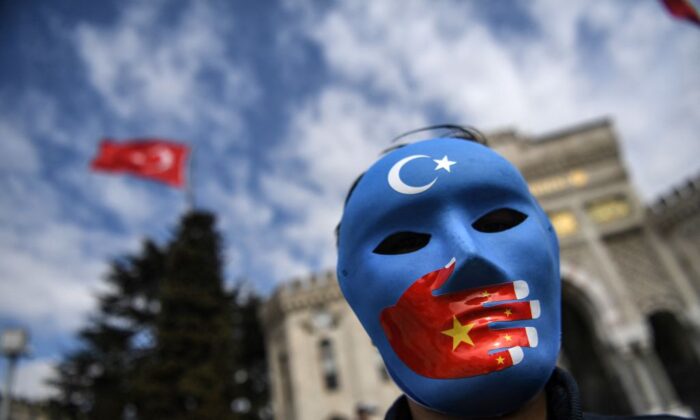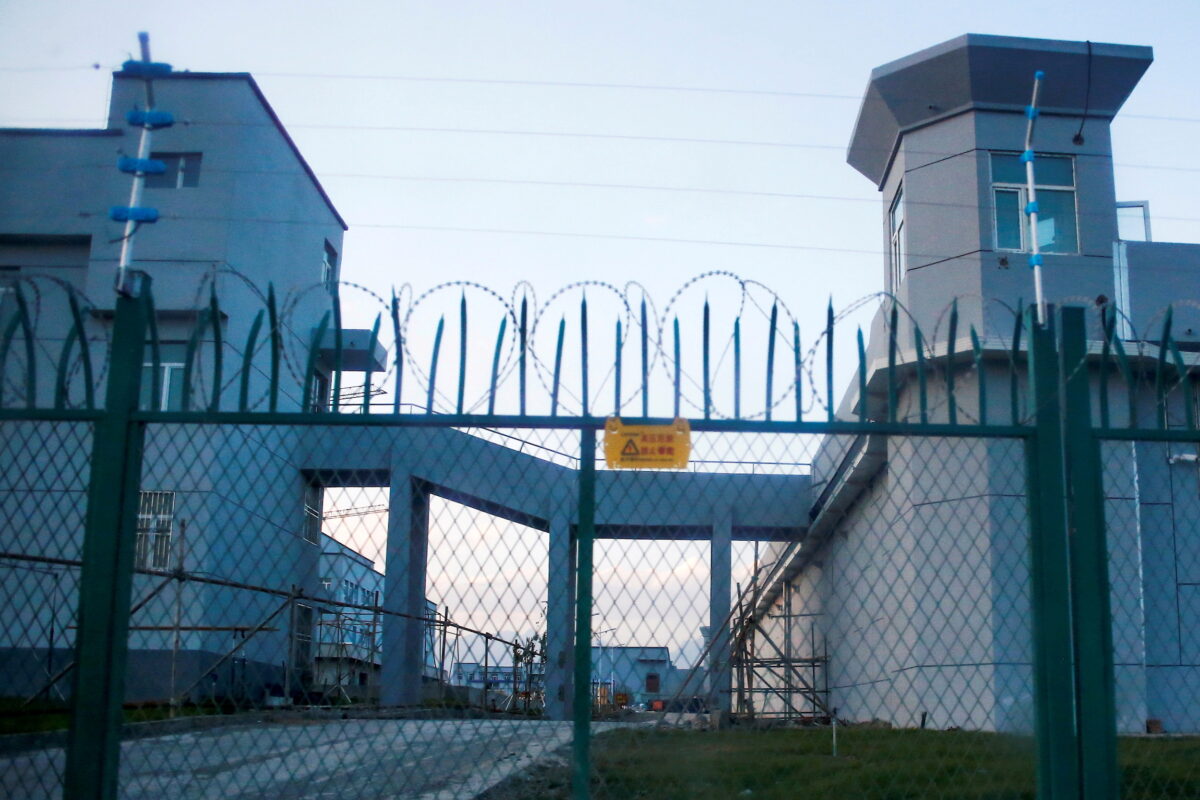
A demonstrator wearing a mask painted with the colors of the flag of East Turkestan takes part in a protest by supporters of the Uyghur minority on April 1, 2021, at Bayazit Square in Istanbul. (Ozan Kose/AFP via Getty Images)
By
Some 50 countries signed a joint statement at the U.N. General Assembly on Oct. 31 urging China to uphold its human rights obligations and release all those who are being “arbitrarily deprived of their liberty” in Xinjiang.
The nations—which include the United States, Japan, the UK, Australia, Germany, and Israel—made up the largest group of countries to publicly condemn China’s ongoing human rights abuses.
They referred to a U.N. report published on Aug. 31 detailing abuses committed by the Chinese Communist Party (CCP) against Uyghurs and other Muslim minorities, which the report states amounted to crimes against humanity.
“Such severe and systematic violations of human rights cannot be justified on the basis of counterterrorism,” the joint statement reads.
It raised concerns over China’s refusal to discuss the report’s findings.
The signatory countries urged China to promptly release all detained individuals in Xinjiang, urgently clarify the fate and whereabouts of missing family members, and facilitate safe contact and reunion.

A perimeter fence surrounds a forced reeducation center in Dabancheng, Xinjiang, China, on Sept. 4, 2018. (Thomas Peter/Reuters)
The U.S.-based Council on American–Islamic Relations (CAIR) welcomed the joint statement and called on Muslim-majority nations to oppose the CCP’s “Islamophobic campaign of terror against Uyghur Muslims.”
“It is time for more Muslim-majority nations to also stand up against the CCP’s attempt to erase Islam from the Uyghur region of China,” CAIR Deputy Director Edward Ahmed Mitchell said in a statement.
UN Rejects Debate on Uyghurs
Early in October, the U.N. Human Rights Council (UNHRC) rejected a proposal co-sponsored by the United States and the UK to hold a debate on the CCP’s human rights violations in Xinjiang.
A total of 17 countries voted in favor, 19 were against, and 11 abstained.
Indonesia, the world’s largest Muslim country, was among those 19 nations that voted against the motion, along with Qatar, the United Arab Emirates, and Pakistan.
Achsanul Habib, director of human rights at Indonesia’s Foreign Affairs Ministry, said that UNHRC member states should engage in “impartial dialogue” and not take a selective approach to human rights issues.
“We voted ‘no’ because we don’t want the politicization of the Human Rights Council, [for it] to be used for the purpose of political rivalry,” he said on Oct. 7.
Habib said Indonesia has consulted with all parties regarding its decision, including China and those who have backed the proposal.
Had the motion been passed by the UNHRC, victims and activists would have been able to tell the international community about the real situation in the region, the World Uyghur Congress said in a statement.